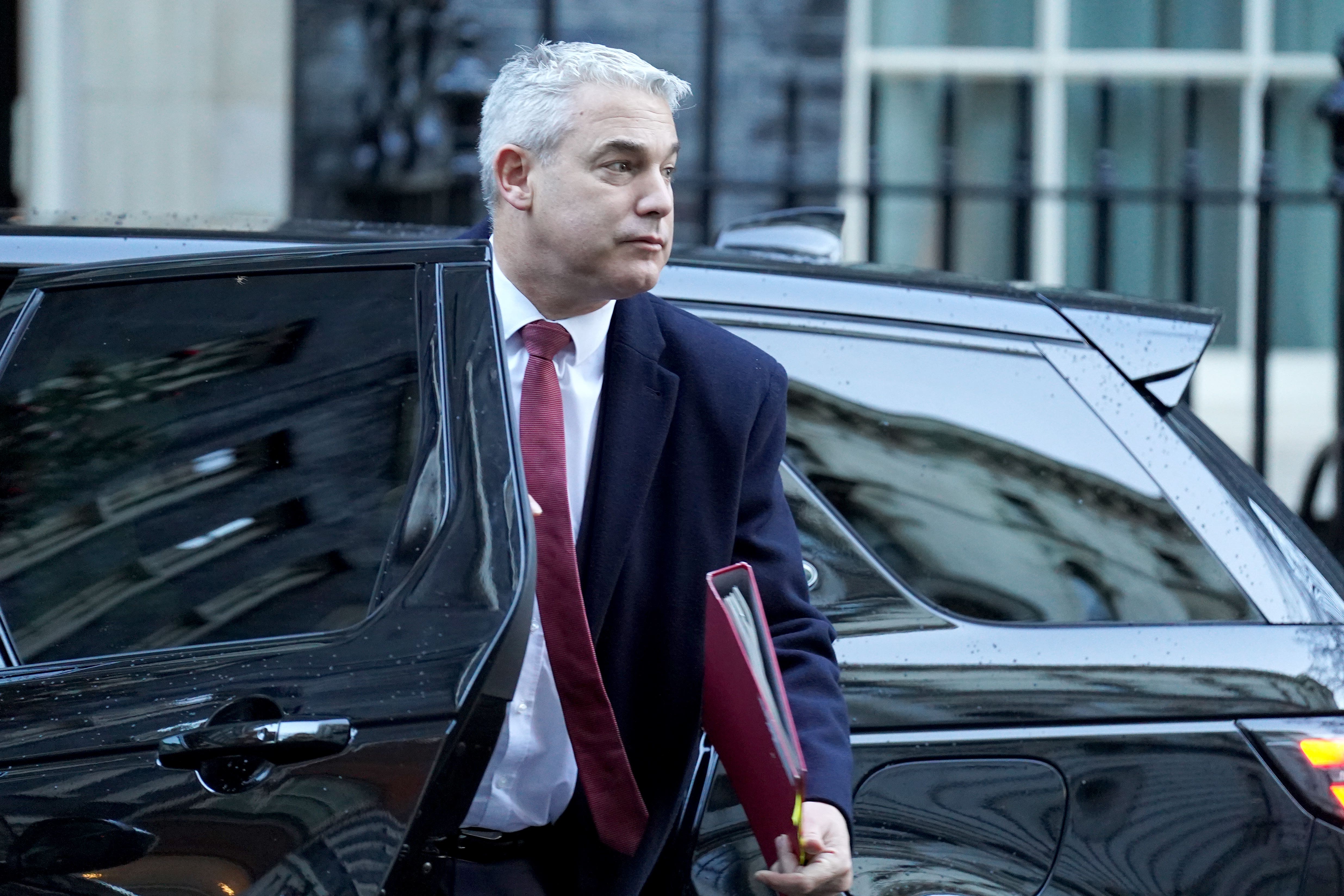Steve Barclay accuses unions of choosing to ‘inflict harm’ on patients
Health secretary urges public to take ‘extra care’ as 25,000 ambulance staff walk out

Health secretary Steve Barclay has accused trade unions of making a “conscious decision” to “inflict harm” on patients as thousands of ambulance staff walk out on the first of two one-day strikes.
Mr Barclay urged the public to take “extra care” after last ditch talks with the unions on Tuesday failed to avert planned industrial action by around 25,000 staff in England and Wales.
As NHS leaders warned they could not guarantee patient safety, the unions angrily accused the Government of putting lives at risk by refusing to engage with them on the issue of pay.
But writing in The Daily Telegraph, Mr Barclay said: “We now know that the NHS contingency plans will not cover all 999 calls.
“Ambulance unions have made a conscious choice to inflict harm onpatients.”
Union leaders insisted there would still be cover for the most serious calls through a series of local agreements.
Unite general secretary Sharon Graham said claims many serious calls would receive no response were “misleading” and “at worst deliberately scaremongering” by ministers.
Christina McAnea, the Unison general secretary, said that if there were any deaths during the strike it would “absolutely” be the fault of the Government.
“They have been totally irresponsible,” she told TalkTV. “It’s completely irresponsible of them to refuse to open any kind of discussions or negotiations with us.”
Earlier, the NHS Confederation and NHS Providers, which collectively represent all NHS organisations, wrote to the Prime Minister warning they were entering “dangerous territory” and urging him to end to the deadlock.
“With less than 24 hours to go until the ambulance strike, there is deep worry among NHS leaders about the level of harm and risk that could occur to patients tomorrow and beyond,” they said.
However, appearing before the Commons Liaison Committee, Rishi Sunak was adamant that the Government could not accede to inflationary pay claims which would simply stoke soaring prices.
Meanwhile, nurses in England, Wales and Northern Ireland – who held a second 12-hour stoppage on Tuesday in support of their pay claim – said they will be announcing further strike dates on Friday unless ministers come forward with new proposals.
With fewer ambulances on the road, ministers have appealed to people to drink responsibly, think again about contact sports and avoid running on icy roads.
Around 600 armed forces personnel are being deployed to cover for striking ambulance staff, providing support for paramedics, although their role will be strictly limited.
They are not due to be sent on critical emergency callouts or carry out clinical tasks and will not be allowed to break red lights or turn on blue lights when driving.
As the Government’s Cobra civil contingencies committee prepared to meet again on Wednesday to discuss the situation, Mr Barclay insisted patient safety was his “number one priority”.
“The Government and NHS colleagues have been working to protect safe staffing levels,” he said in a statement.
“However, there will be fewer ambulances on the road due to industrial action and the NHS will be prioritising those with life-threatening needs.
“My message to the public is to take extra care tomorrow and plan your activity accordingly. You may also want to check up on more vulnerable friends, family and neighbours.”
The industrial action affects all the ambulance trusts in England – apart from East of England and the Isle of Wight – and all those in Wales, with each of the unions involved striking at slightly different times.
Unison’s actions runs from noon until midnight on Wednesday while the GMB action runs from midnight Tuesday to midnight on Wednesday, and Unite’s from midnight Tuesday to midday on Wednesday.
It is expected that all category 1 calls – the most life-threatening such as cardiac arrest – will still be responded to along with the most serious category 2 calls which covers serious conditions, such as stroke or chest pain.
Following the unions’ meeting with Mr Barclay, Ms McAnea said it appeared the Health Secretary’s “hands are tied” on the issue of pay as she warned that further strikes in January were now on the cards.
“He was concerned about the strike, sympathetic to ambulance and other health workers but has no room for manoeuvre apparently, so I don’t know where we go with this,” she said.
“His hands are tied apparently… he has to decide where the money goes and it’s not going to staff.”




Join our commenting forum
Join thought-provoking conversations, follow other Independent readers and see their replies
0Comments